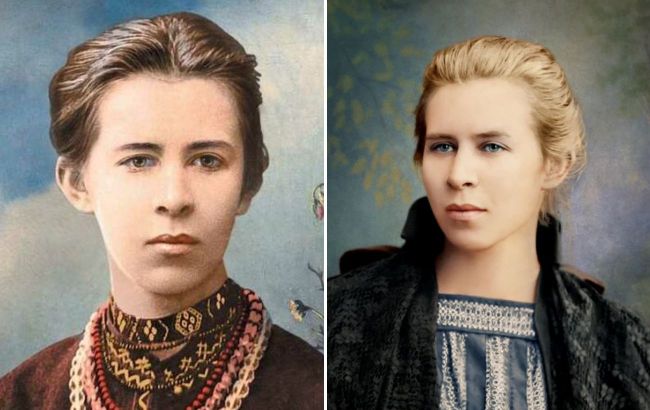Untold story of Lesya Ukrainka: Myths and facts revealed
 Truth and myths about the life and work of Lesya Ukrainka (Collage RBC-Ukraine)
Truth and myths about the life and work of Lesya Ukrainka (Collage RBC-Ukraine)
Lesya Ukrainka (real name Larysa Kosach-Kvitka) was a remarkable figure in Ukrainian literature. She deliberately chose the pseudonym "Ukrainka" at a time when it was a political challenge, and became the voice of women's freedom, an intellectual strategist, and a cultural leader. Her life was a constant resistance to the empire, censorship, and her own illness. Here is what school textbooks don't tell you about Lesya Ukrainka.
Myths and truths about Lesya Ukrainka
Myth 1. Lesya Ukrainka was a "gentle poetess"
Truth:
In school programs, she is often reduced to a few lyrical, tender, melodious, feminine poems. But she never saw herself this way.
In her letters, she wrote: "I have in my heart that which does not die." She did not avoid pain, conflict, or tragedy. Her dramas are more intellectual battles than "lyrics for the soul."
Her works reveal strategic thinking, as her characters fight for ideas, freedom, and choice.
Myth 2. She only wrote about love
Truth:
Yes, in her works, there are love themes, but they are not sweet stories; they are rather challenges. The drama "The Obsessed," written at the deathbed of Serhiy Merzhynsky, is a monologue of both pain and strength.
"The Forest Song" is not only about the love of Mavka and Lukash, but also about personal freedom, the choice between creativity and daily life, and the betrayal of oneself.
In many of her dramas, love is just a backdrop for larger themes of power, loyalty to an idea, and struggle.
Myth 3. Lesya was weak because of her illness
Truth:
She lived with a severe form of bone tuberculosis, accompanied by constant pain, surgeries, and restrictions. But her weakness is a myth.
On the contrary, despite her illness, she traveled the world (Egypt, Italy, Georgia, Crimea), wrote large-scale dramas, engaged in political activity, and translated from dozens of languages.
Her illness only made her more resilient, and she learned to live in constant resistance. That strength is felt in her texts.
Myth 4. She was far from politics
Truth:
In reality, Lesya Ukrainka lived in politics. She communicated with socialists and Marxists, was part of Mykhailo Drahomanov's circle, and closely followed European revolutionary movements.
Her works reflect the idea of struggle against the empire and the defense of the people's right to independence.
Due to this fact, she was constantly monitored by the tsar's police. Her file described her as "unreliable, dangerous, inclined to socialist ideas."
Myth 5. She was a "traditionalist woman"
Truth:
Lesya Ukrainka was one of the first Ukrainian feminists. She saw herself as equal to men, and at times even stronger. In her works, her heroines do not sacrifice themselves for men; instead, they act independently.
She was friends with and corresponded with Olha Kobylianska, another feminist writer. Their exchange of ideas was, in fact, an early feminist platform: women's right to freedom, creativity, and their own path.
Myth 6. Her work was only "national"
Truth:
Yes, Lesya Ukrainka is a symbol of Ukrainian culture. But her thinking was much broader. Her dramas feature images of ancient heroes, biblical motifs, and Eastern plots.
She spoke more than ten languages and translated Homer, Shakespeare, Heine, and Hugo. Thus, she can be considered not only a Ukrainian classic but also a European intellectual of global significance.
Myth 7. Lesya was an "insensitive intellectual"
Truth:
The official portrait often hides the living person. In reality, Lesya loved life and music and had a subtle sense of humor.
In the Kosach family, she was called "the little star." She played piano, collected folklore in villages, laughed, and maintained friendships with her contemporaries. She was a bright, open personality, not a "martyr" from your textbook at school.
You may be interested in:
- What Ukraine looked like on medieval maps
- Which Ukrainian figures are forgotten at home but known worldwide
Sources: Raion.History, Center for Research on the Liberation Movement, Radio Liberty, BBC Ukraine.

